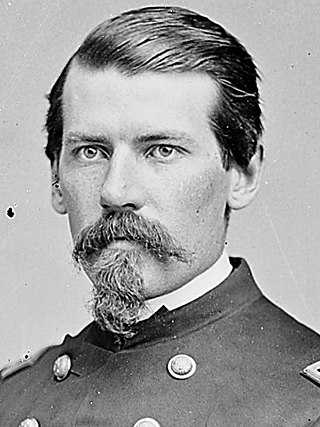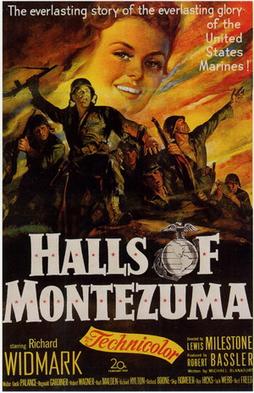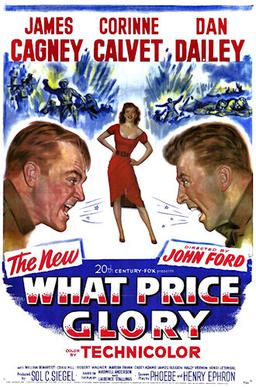Overview
The Army's supplies of penicillin are low, and thefts are high. For its medicinal value in treating infections, and because it gets top dollar on the black market, the drug has earned the nickname "white gold". A trio of soldiers dressed in spy gear is caught breaking into the 4077th's emergency ration. One is captured, who refuses to talk, and offers only a dog tag marked "Perkins" as identification. Radar O'Reilly traces the tag and learns it belonged to another soldier killed in action.
Lieutenant Colonel Flagg learns of the break-in and comes to the camp to investigate. Left alone to question the soldier, Flagg tells him "Get out!" and leaves the door open for him to escape. Injuring himself and trashing the tent, Flagg insists there was a struggle and promises to connect the incident to his latest case, studying penicillin turning up on the black market. (Flagg knows this to be happening—because he's been supplying the drug to informants.)
Recaptured, the soldier (whose name is disclosed as Johnson) explains to the M*A*S*Hers who he really is: an Army medic, who has been stealing small amounts of the drug to immediately treat soldiers on the front lines. Lieutenant Colonel Henry Blake (the hospital administrator) offers to share any surplus penicillin the camp has in the future—on the condition that Johnson and his buddies ask them for it.

Ulysses S. Grant was an American military officer, politician, and the 18th president of the United States, who served two terms from 1869 to 1877. As commanding general, Grant led the Union Army to victory in the American Civil War in 1865 and briefly served as U.S. secretary of war. An effective civil rights executive, Grant signed a bill to create the Justice Department and worked with Radical Republicans to protect African Americans during Reconstruction.

A Soldier's Story is a 1984 American mystery drama film directed and produced by Norman Jewison, adapted by Charles Fuller from his Pulitzer Prize-winning A Soldier's Play. It is a story about racism in a segregated regiment of the U.S Army commanded by White officers and training in the Jim Crow South, in a time and place where a Black officer is unprecedented and bitterly resented by nearly everyone, and follows an African-American JAG officer sent to investigate the murder of an African-American sergeant in Louisiana near the end of World War II.

Horace C. Porter was an American soldier and diplomat who served as a lieutenant colonel, ordnance officer and staff officer in the Union Army during the American Civil War, personal secretary to General and President Ulysses S. Grant. He also was secretary to General William T. Sherman, vice president of the Pullman Palace Car Company and U.S. Ambassador to France from 1897 to 1905.

Benjamin Oliver Davis Sr. was a career officer in the United States Army. One of the few black officers in an era when American society was largely segregated, in 1940 he was promoted to brigadier general, the army's first African American general officer.

Crazy Horse was a Lakota war leader of the Oglala band in the 19th century. He took up arms against the United States federal government to fight against encroachment by White American settlers on Native American territory and to preserve the traditional way of life of the Lakota people. His participation in several famous battles of the Black Hills War on the northern Great Plains, among them the Fetterman Fight in 1866, in which he acted as a decoy, and the Battle of the Little Bighorn in 1876, in which he led a war party to victory, earned him great respect from both his enemies and his own people.

The Powder River Expedition of 1865 also known as the Powder River War or Powder River Invasion, was a large and far-flung military operation of the United States Army against the Lakota Sioux, Cheyenne, and Arapaho Indians in Montana Territory and Dakota Territory. Although soldiers destroyed one Arapaho village and established Fort Connor to protect gold miners on the Bozeman Trail, the expedition is considered a failure because it failed to defeat or intimidate the Indians.

An aiguillette, also spelled aguillette, aiglet or aglet, is a cord with metal tips or lace tags, or the decorative tip itself.

The 1st Rhode Island Regiment was a regiment in the Continental Army raised in Rhode Island during the American Revolutionary War (1775–83). It was one of the few units in the Continental Army to serve through the entire war, from the siege of Boston to the disbanding of the Continental Army on November 3, 1783.

The Unvanquished is a 1938 novel by the American author William Faulkner, set in the fictional Yoknapatawpha County. It tells the story of the Sartoris family, who first appeared in the novel Sartoris. The Unvanquished takes place before that story, and is set during the American Civil War. Principal characters are Bayard Sartoris, John Sartoris, Granny, Ringo (Morengo), Ab Snopes, Cousin Drusilla, Aunt Jenny, Louvinia, and the lieutenant.

Duel at Diablo is a 1966 American Western film starring James Garner in his first Western after leaving the long-running tv series Maverick, as well as Sidney Poitier in his first ever Western. Based on Marvin H. Albert's 1957 novel Apache Rising, the film was co-written by Albert and Michael M. Grilikhes; it was directed by Ralph Nelson, who had directed Poitier in Lilies of the Field. The supporting cast includes Bibi Andersson, Bill Travers, Dennis Weaver and John Hoyt; Ralph Nelson has a cameo as an Army Major. The movie was shot on location amidst striking scenery in southern Utah; the musical score was composed by Neal Hefti.
The Brotherhood of War is a series of novels written by W. E. B. Griffin, about the United States Army from the Second World War through the Vietnam War. The story centers on the careers of four U.S. Army officers who became lieutenants in the closing stages of World War II and the late 1940s. The series is notable for the amount of attention it does not devote to combat. Rather than skipping forward, it follows the main characters though their peacetime service as the army evolves in the 1940s, 1950s and 1960s, particularly in the development of Army Aviation and the Special Forces.

Halls of Montezuma is a 1951 American World War II war film directed by Academy Award-winner Lewis Milestone and starring Richard Widmark. It also stars Robert Wagner in his first credited screen role and features Richard Boone in his feature-film debut. The story is about U.S. Marines fighting on a Japanese-held island, and the title is a reference to the opening line from the Marines' Hymn.
"Deal Me Out" was the 37th episode of the M*A*S*H television series and the thirteenth of season two. The episode aired on December 8, 1973.
"A Smattering of Intelligence" was the final episode in season two of the American television series M*A*S*H. It first aired on March 2, 1974. The character of Lieutenant Colonel Sam Flagg was first introduced by name in this episode. Winter portrayed a similar character called Captain Halloran eleven episodes earlier in "Deal Me Out", and the two are implied in "Quo Vadis, Captain Chandler?" to have been one and the same. Flagg has any number of aliases.

What Price Glory is a 1952 American Technicolor war film based on a 1924 play by Maxwell Anderson and Laurence Stallings, though it used virtually none of Anderson's dialogue. Originally intended as a musical, it was filmed as a straight comedy-drama, directed by John Ford and released by 20th Century Fox on August 22, 1952, in the U.S. The screenplay was written by Phoebe and Henry Ephron, and stars James Cagney and Dan Dailey as US Marines in World War I.

First Lieutenant Charles Bare Gatewood was an American soldier born in Woodstock, Virginia. He was raised in Harrisonburg, Virginia, where his father ran a press. He served in the United States Army in the 6th Cavalry after graduating from West Point. Upon assignment to the American Southwest, Gatewood led platoons of Apache and Navajo scouts against renegades during the Apache Wars. In 1886, he played a key role in ending the Geronimo Campaign by persuading Geronimo to surrender to the army. Beset with health problems due to exposure in the Southwest and Dakotas, Gatewood was critically injured in the Johnson County War and retired from the Army in 1895, dying a year later from stomach cancer. Before his retirement he was nominated for the Medal of Honor, but was denied the award. He was portrayed by Jason Patric in the 1993 film Geronimo: An American Legend.

Vatanım Sensin is a Turkish television drama set during the last years of Ottoman Empire and the Turkish War of Independence. The main character "Cevdet" is based on the life of Mustafa Mümin Aksoy, whose nickname was "Gavur Mümin". The first episode aired on October 26, 2016, on Kanal D. It stars Halit Ergenç and Bergüzar Korel.
The 93rd Engineer General Service Regiment (93rd) was a segregated general services regiment of the United States Army. It was activated at Camp Livingston, Louisiana. The 93rd was one of several Army units composed entirely of Black enlisted personnel that constructed the Alaska-Canada highway.













